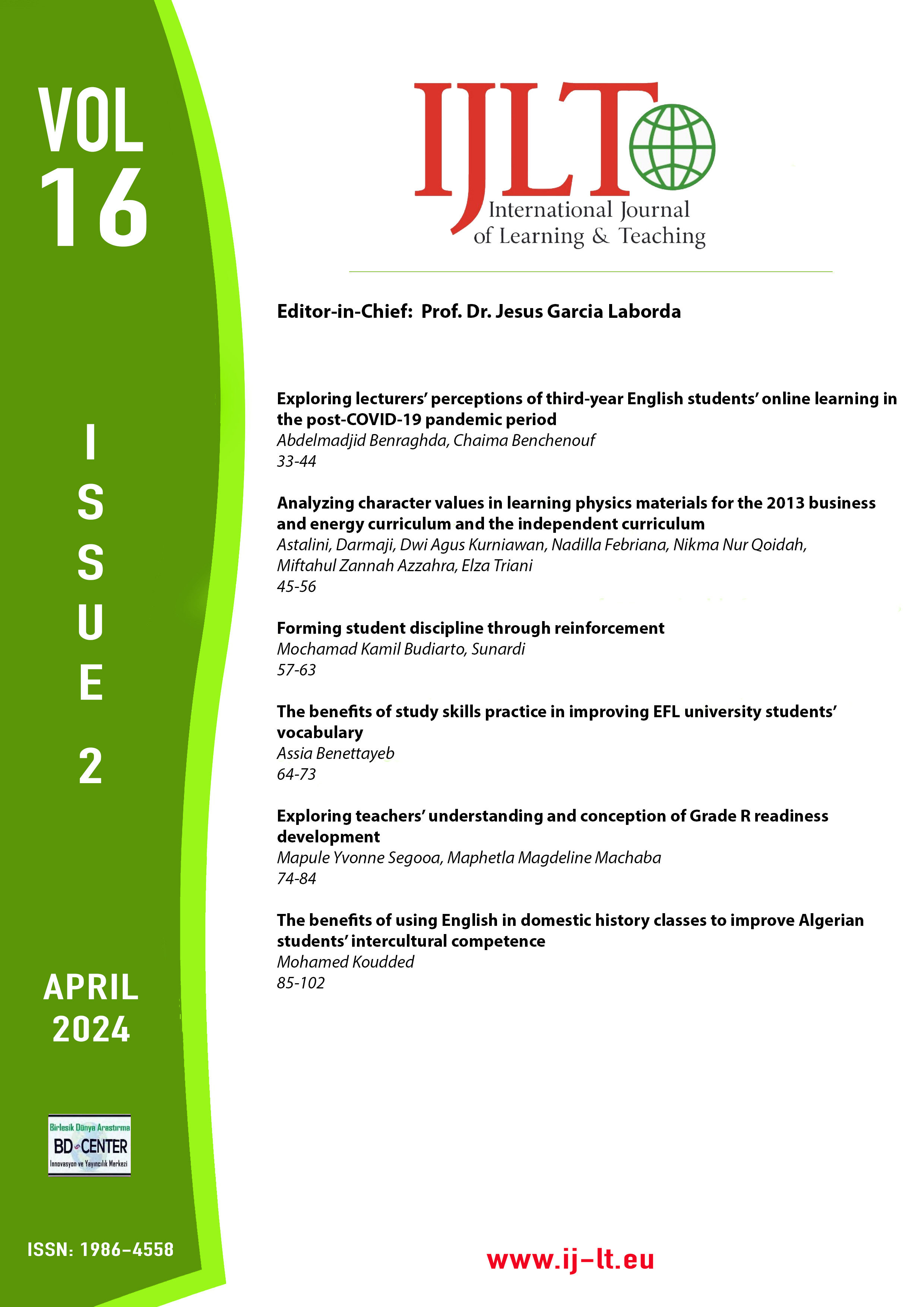The benefits of using English in domestic history classes to improve Algerian students’ intercultural competence
Main Article Content
Abstract
This paper aims to examine the effectiveness of incorporating English as a means of teaching the history of Algeria as a cultural component in English textbooks, as a way of enhancing the student’s linguistic and cultural competency. To achieve this aim, instructors in Algerian Southern provinces are asked to respond to a questionnaire created specifically for English-language secondary school teachers. The number of the teachers who responded to the questionnaire is thirteen (13) teachers. The study found that the majority of teachers have positive attitudes towards the efficiency of teaching historical facts about Algeria in English. Based on the findings, teaching the history of Algeria in English seems to be an addition to enhancing the learners’ skills in improving their knowledge about the history of the country's culture. This study is directed to the officials, syllabus designers, teachers, and supervisors to consider inserting historical topics about Algeria in English textbooks to enhance both the student’s linguistic and intercultural knowledge.
Keywords: Culture; EFL Class; history; intercultural competence; teaching.
Downloads
Article Details

This work is licensed under a Creative Commons Attribution-NonCommercial-NoDerivatives 4.0 International License.
Authors who publish with this journal agree to the following terms:
- Authors retain copyright and grant the journal right of first publication with the work simultaneously licensed under a Creative Commons Attribution License that allows others to share the work with an acknowledgement of the work's authorship and initial publication in this journal.
- Authors are able to enter into separate, additional contractual arrangements for the non-exclusive distribution of the journal's published version of the work (e.g., post it to an institutional repository or publish it in a book), with an acknowledgement of its initial publication in this journal.
- Authors are permitted and encouraged to post their work online (e.g., in institutional repositories or on their website) prior to and during the submission process, as it can lead to productive exchanges, as well as earlier and greater citation of published work (SeeThe Effect of Open Access).
